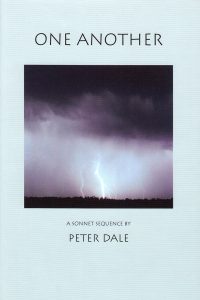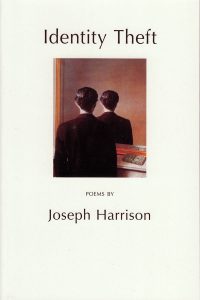Stone Fruit
£9.99
The locales in Stephen’s Yenser’s new volume are California, Kansas, and Greece, where the titular fruits include respectively the date palm, the blackberry, and the olive. But the sculpted fruit on a grave marker qualifies as well, along with the stone wall that is the yield of hard labor, both of which also figure in this book. Words too may be fleshy and hard at once, may be elegiac and memorial, and may build a structure. To cultivate, to commemorate, and to construct are the poet’s objects, each involved with the others.
Stone Fruit
I was dazzled, my mind circumspangled, by the erotics of language in this profound—and profoundly moving—book. Memory, art, embodiment, the largest concerns, take the form of elegies, satires,ekphrases, and translations, for Yenser is a virtuoso, if that word can suggest grace and heart as well as world class chops. The seductions of material artifacts (a beloved writing desk, a lock of Dickinson’s hair, Edward Lear’s travel journals) are scrutinized with an almost fetishistic attention, a devotion that gradually morphs into a dialogic of nothingness and somethingness, an Epicurean equipoise seeded with voluptuary appreciation. Sublime intelligence couples with steadfast emotional honesty; past and present implode, and the fragrance of time is generated by tones ‘a touch acidic, wit-dry, heady.’ In addition to personal lyrics of devastating tenderness, Yenser composes trenchant indictments of U.S. politics, the festering legacy of the Bush-era. Whether acerbic or buoyant, his beautifully made poems are so smart they sting. Words are flayed, dismantled, and hidden etymologies brought to light in lines that fibrillate with slippage and polysemy. ‘O psychedelicacies!’ There are potent ironies and Shakespearian adroitness in the nuanced linguistic layers, but Yenser is praying as much as playing: the two are indivisible in these intensely musical, mindful poems. His questions of travel go to the pith of what it means to live and die.
— Alice Fulton
Philosophers have traced the origin of logos to the gathering of crops, perhaps even of olives—which led one writer to urge us to consider the word as a small firm pungent fruit, with a hard pit at its center. Stephen Yenser would agree. Each word in Stone Fruit has been harvested, brined in wit, and glistens with its own discoveries and sympathies. The pithy verse encloses tooth-cracking truths. Whether set on a Greek island’s beach or a bar in Los Angeles, his poems explore how immutable facts of the world look through the shifting, transfixing prism of language. Explosive lyrics, an exuberant catalogue, an aching elegy, a razory jeremiad—this is a book bursting with astonishments. No one today writes with Yenser’s head-spinning, heart-wringing flair. It will make your shelf shake.
— J. D. McClatchy
Stone Fruit is a feast for the soul, a grand fugue with all the organ stops pulled out, a concert of gorgeous and complex music. Dazzling and brilliant in word play that generates and sustains his poems, Yenser is remarkable for his depth of feeling and range of experience, and also for his ability to be simultaneously personal and universal. Moving with ease between the classical and the contemporary, between elegy and satire, he enacts what Hölderlin meant when he wrote, ‘Poets are holy glass / In which life’s wine, / The spirit of heroes, is kept.’ Heroes are protectors, and poet-heroes like Yenser have the genius to protect, nurture, and safeguard the inner life of language as well as our own inner life. This is a book to savor and read slowly and mindfully—for years to come.
— Susan Mitchell
Reviews of Stone Fruit
Los Angeles Review of Books (January 2017)
Ludic and lucid . . . the poems of Stephen Yenser defy the taxonomy of contemporary American poetry . . . . [James] Merrill was a friend and mentor, and . . . that linguistic legerdemain is evident . . . yet Yenser’s poetry remains very much his own . . . . [T]he central long poem . . . is the Aegean-dazzled “Cycladic Idyll: An Apologia” . . . . While these are strophes of an internal monologue, they invite reading aloud . . . Yenser is so good at a certain kind of fizzy lexical and intellectual sprezzatura that . . . you almost forget that he can also distill his inspiration and drink it neat.
— Alicia Stallings
To read the whole review, please go to Alicia Stallings, Los Angeles Review of Books
London Magazine (July 2017)
Stone Fruit, Stephen Yenser’s highly anticipated third collection published by Waywiser, dazzles, delights, and enchants with its wordplay, predilection for sound effects, and linguistic brilliance. Profound and beautiful, meticulous, bristling with erudition, it sizzles with versatility and sophistication. Both modern and timeless, it resonates into past centuries, at times elliptical, at times mythic, the work of a maestro at the top of his craft. Yenser’s debut volume, The Fire in All Things, was selected by Richard Howard to receive the 1992 Walt Whitman Award of the Academy of American Poets. Blue Guide, his second, was published in 2006. The poems in Stone Fruit span wide geographic distances, from the California Joshua Desert to the Cycladic Islands in Greece, from Kansas to Massachusetts, via various locales in Los Angeles, and are to be savored, ‘Lost as the map, with no directions to follow / Except those of deranged Joshua trees, / And rootless, extravagant as tumbleweed.’ We can hear echos of Emily Dickinson’s ‘Done with the Compass — / Done with the Chart!’ Yenser makes for a very unusual travel guide — constantly surprising with unabashed and contagious joie de vivre — whose range is astonishing. Here we encounter personal, lyrical, and meditative, as well as political and ekphrastic poems, along with a couple of exquisite translations from Hölderlin.
— Hélène Cardona
To read the whole review, please go to Hélène Cardona, London Magazine
Santorini
Mother of Stone, Cybele,
Stone Mother, keep me low,
Resigned, involved, confusable
As to the novice eye the vine
With wild thyme and caper, close
To your chemic soil—
Ash, tuff, and pumice—twined
In on itself to stand
Up under summer wind
And to condense the sure, sheer mist
That plumps until night harvest
Grapes tanged with sulfur, pressed
Then to a salt-tinged must,
Oak barrel ready,
A touch acidic, wit-dry, heady.
The Waywiser Press





